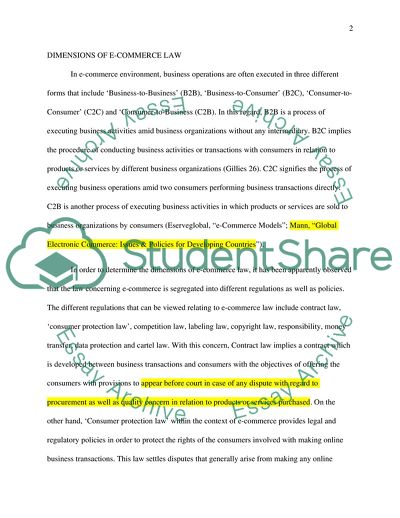Cite this document
(E-commerce law Research Paper Example | Topics and Well Written Essays - 1500 words, n.d.)
E-commerce law Research Paper Example | Topics and Well Written Essays - 1500 words. https://studentshare.org/e-commerce/1802024-e-commerce-law
E-commerce law Research Paper Example | Topics and Well Written Essays - 1500 words. https://studentshare.org/e-commerce/1802024-e-commerce-law
(E-Commerce Law Research Paper Example | Topics and Well Written Essays - 1500 Words)
E-Commerce Law Research Paper Example | Topics and Well Written Essays - 1500 Words. https://studentshare.org/e-commerce/1802024-e-commerce-law.
E-Commerce Law Research Paper Example | Topics and Well Written Essays - 1500 Words. https://studentshare.org/e-commerce/1802024-e-commerce-law.
“E-Commerce Law Research Paper Example | Topics and Well Written Essays - 1500 Words”. https://studentshare.org/e-commerce/1802024-e-commerce-law.


